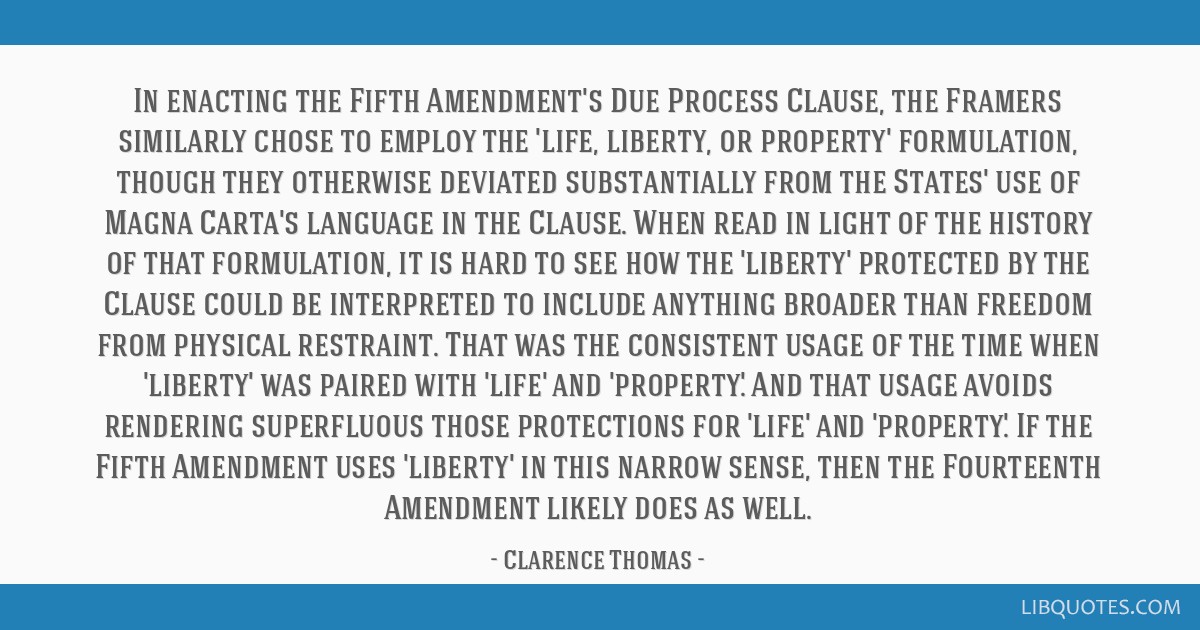In enacting the Fifth Amendment's Due Process Clause, the Framers similarly chose to employ the 'life, liberty, or property' formulation, though they otherwise deviated substantially from the States' use of Magna Carta's language in the Clause. When read in light of the history of that formulation, it is hard to see how the 'liberty' protected by the Clause could be interpreted to include anything broader than freedom from physical restraint. That was the consistent usage of the time when 'liberty' was paired with 'life' and 'property'. And that usage avoids rendering superfluous those protections for 'life' and 'property'. If the Fifth Amendment uses 'liberty' in this narrow sense, then the Fourteenth Amendment likely does as well.
Obergefell v. Hodges (26 June 2015)























